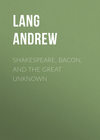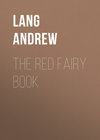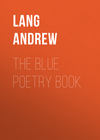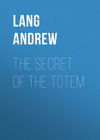Kitabı oku: «Waverley; Or, 'Tis Sixty Years Since», sayfa 22
CHAPTER XXVIII
A LETTER FROM TULLY-VEOLAN
In the morning, when Waverley’s troubled reflections had for some time given way to repose, there came music to his dreams, but not the voice of Selma. He imagined himself transported back to Tully-Veolan, and that he heard Davie Gellatley singing in the court those matins which used generally to be the first sounds that disturbed his repose while a guest of the Baron of Bradwardine. The notes which suggested this vision continued, and waxed louder, until Edward awoke in earnest. The illusion, however, did not seem entirely dispelled. The apartment was in the fortress of Ian nan Chaistel, but it was still the voice of Davie Gellatley that made the following lines resound under the window: —
My heart’s in the Highlands, my heart is not here,
My heart’s in the Highlands a-chasing the deer;
A-chasing the wild deer, and following the roe,
My heart’s in the Highlands wherever I go.
[Footnote: These lines form the burden of an old song to which Burns wrote additional verses.]
Curious to know what could have determined Mr. Gellatley on an excursion of such unwonted extent, Edward began to dress himself in all haste, during which operation the minstrelsy of Davie changed its tune more than once: —
There’s nought in the Highlands but syboes and leeks,
And lang-leggit callants gaun wanting the breeks,
Wanting the breeks, and without hose and shoon,
But we’ll a’win the breeks when King Jamie comes hame.
[Footnote: These lines are also ancient, and I believe to the tune of ‘We’ll never hae peace till Jamie comes hame,’ to which Burns likewise wrote some verses.]
By the time Waverley was dressed and had issued forth, David had associated himself with two or three of the numerous Highland loungers who always graced the gates of the castle with their presence, and was capering and dancing full merrily in the doubles and full career of a Scotch foursome reel, to the music of his own whistling. In this double capacity of dancer and musician he continued, until an idle piper, who observed his zeal, obeyed the unanimous call of seid suas (i.e. blow up), and relieved him from the latter part of his trouble. Young and old then mingled in the dance as they could find partners. The appearance of Waverley did not interrupt David’s exercise, though he contrived, by grinning, nodding, and throwing one or two inclinations of the body into the graces with which he performed the Highland fling, to convey to our hero symptoms of recognition. Then, while busily employed in setting, whooping all the while, and snapping his fingers over his head, he of a sudden prolonged his side-step until it brought him to the place where Edward was standing, and, still keeping time to the music like Harlequin in a pantomime, he thrust a letter into our hero’s hand, and continued his saltation without pause or intermission. Edward, who perceived that the address was in Rose’s hand-writing, retired to peruse it, leaving the faithful bearer to continue his exercise until the piper or he should be tired out.
The contents of the letter greatly surprised him. It had originally commenced with ‘Dear Sir’; but these words had been carefully erased, and the monosyllable ‘Sir’ substituted in their place. The rest of the contents shall be given in Rose’s own language.
I fear I am using an improper freedom by intruding upon you, yet I cannot trust to any one else to let you know some things which have happened here, with which it seems necessary you should be acquainted. Forgive me, if I am wrong in what I am doing; for, alas! Mr. Waverley, I have no better advice than that of my own feelings; my dear father is gone from this place, and when he can return to my assistance and protection, God alone knows. You have probably heard that, in consequence of some troublesome news from the Highlands, warrants were sent out for apprehending several gentlemen in these parts, and, among others, my dear father. In spite of all my tears and entreaties that he would surrender himself to the government, he joined with Mr. Falconer and some other gentlemen, and they have all gone northwards, with a body of about forty horsemen. So I am not so anxious concerning his immediate safety as about what may follow afterwards, for these troubles are only beginning. But all this is nothing to you, Mr. Waverley, only I thought you would be glad to learn that my father has escaped, in case you happen to have heard that he was in danger.
The day after my father went off there came a party of soldiers to Tully-Veolan, and behaved very rudely to Bailie Macwheeble; but the officer was very civil to me, only said his duty obliged him to search for arms and papers. My father had provided against this by taking away all the arms except the old useless things which hung in the hall, and he had put all his papers out of the way. But O! Mr. Waverley, how shall I tell you, that they made strict inquiry after you, and asked when you had been at Tully-Veolan, and where you now were. The officer is gone back with his party, but a non-commissioned officer and four men remain as a sort of garrison in the house. They have hitherto behaved very well, as we are forced to keep them in good-humour. But these soldiers have hinted as if, on your falling into their hands, you would be in great danger; I cannot prevail on myself to write what wicked falsehoods they said, for I am sure they are falsehoods; but you will best judge what you ought to do. The party that returned carried off your servant prisoner, with your two horses, and everything that you left at Tully-Veolan. I hope God will protect you, and that you will get safe home to England, where you used to tell me there was no military violence nor fighting among clans permitted, but everything was done according to an equal law that protected all who were harmless and innocent. I hope you will exert your indulgence as to my boldness in writing to you, where it seems to me, though perhaps erroneously, that your safety and honour are concerned. I am sure – at least I think, my father would approve of my writing; for Mr. Rubrick is fled to his cousin’s at the Duchran, to to be out of danger from the soldiers and the Whigs, and Bailie Macwheeble does not like to meddle (he says) in other men’s concerns, though I hope what may serve my father’s friend at such a time as this cannot be termed improper interference. Farewell, Captain Waverley! I shall probably never see you more; for it would be very improper to wish you to call at Tully-Veolan just now, even if these men were gone; but I will always remember with gratitude your kindness in assisting so poor a scholar as myself, and your attentions to my dear, dear father.
I remain, your obliged servant,
ROSE COMYNE BRADWARDINE.
P.S. – I hope you will send me a line by David Gellatley, just to say you have received this and that you will take care of yourself; and forgive me if I entreat you, for your own sake, to join none of these unhappy cabals, but escape, as fast as possible, to your own fortunate country. My compliments to my dear Flora and to Glennaquoich. Is she not as handsome and accomplished as I have described her?
Thus concluded the letter of Rose Bradwardine, the contents of which both surprised and affected Waverley. That the Baron should fall under the suspicions of government, in consequence of the present stir among the partisans of the house of Stuart, seemed only the natural consequence of his political predilections; but how HE himself should have been involved in such suspicions, conscious that until yesterday he had been free from harbouring a thought against the prosperity of the reigning family, seemed inexplicable. Both at Tully-Veolan and Glennaquoich his hosts had respected his engagements with the existing government, and though enough passed by accidental innuendo that might induce him to reckon the Baron and the Chief among those disaffected gentlemen who were still numerous in Scotland, yet until his own connection with the army had been broken off by the resumption of his commission, he had no reason to suppose that they nourished any immediate or hostile attempts against the present establishment. Still he was aware that, unless he meant at once to embrace the proposal of Fergus Mac-Ivor, it would deeply concern him to leave the suspicious neighbourhood without delay, and repair where his conduct might undergo a satisfactory examination. Upon this he the rather determined, as Flora’s advice favoured his doing so, and because he felt inexpressible repugnance at the idea of being accessary to the plague of civil war. Whatever were the original rights of the Stuarts, calm reflection told him that, omitting the question how far James the Second could forfeit those of his posterity, he had, according to the united voice of the whole nation, justly forfeited his own. Since that period four monarchs had reigned in peace and glory over Britain, sustaining and exalting the character of the nation abroad and its liberties at home. Reason asked, was it worth while to disturb a government so long settled and established, and to plunge a kingdom into all the miseries of civil war, for the purpose of replacing upon the throne the descendants of a monarch by whom it had been wilfully forfeited? If, on the other hand, his own final conviction of the goodness of their cause, or the commands of his father or uncle, should recommend to him allegiance to the Stuarts, still it was necessary to clear his own character by showing that he had not, as seemed to be falsely insinuated, taken any step to this purpose during his holding the commission of the reigning monarch.
The affectionate simplicity of Rose and her anxiety for his safety, his sense too of her unprotected state, and of the terror and actual dangers to which she might be exposed, made an impression upon his mind, and he instantly wrote to thank her in the kindest terms for her solicitude on his account, to express his earnest good wishes for her welfare and that of her father, and to assure her of his own safety. The feelings which this task excited were speedily lost in the necessity which he now saw of bidding farewell to Flora Mac-Ivor, perhaps for ever. The pang attending this reflection was inexpressible; for her high-minded elevation of character, her self-devotion to the cause which she had embraced, united to her scrupulous rectitude as to the means of serving it, had vindicated to his judgment the choice adopted by his passions. But time pressed, calumny was busy with his fame, and every hour’s delay increased the power to injure it. His departure must be instant.
With this determination he sought out Fergus, and communicated to him the contents of Rose’s letter, with his own resolution instantly to go to Edinburgh, and put into the hands of some one or other of those persons of influence to whom he had letters from his father his exculpation from any charge which might be preferred against him.
‘You run your head into the lion’s mouth,’ answered Mac-Ivor. ‘You do not know the severity of a government harassed by just apprehensions, and a consciousness of their own illegality and insecurity. I shall have to deliver you from some dungeon in Stirling or Edinburgh Castle.’
‘My innocence, my rank, my father’s intimacy with Lord M – , General G – , etc., will be a sufficient protection,’ said Waverley.
‘You will find the contrary,’ replied the Chieftain, ‘these gentlemen will have enough to do about their own matters. Once more, will you take the plaid, and stay a little while with us among the mists and the crows, in the bravest cause ever sword was drawn in?’
[Footnote: A Highland rhyme on Glencairn’s Expedition, in 1650, has these lines —
We’ll bide a while amang ta crows,
We’ll wiske ta sword and bend ta bows]
‘For many reasons, my dear Fergus, you must hold me excused.’
‘Well then,’ said Mac-Ivor, ‘I shall certainly find you exerting your poetical talents in elegies upon a prison, or your antiquarian researches in detecting the Oggam [Footnote: The Oggam is a species of the old Irish character. The idea of the correspondence betwixt the Celtic and Punic, founded on a scene in Plautus, was not started till General Vallancey set up his theory, long after the date of Fergus Mac-Ivor] character or some Punic hieroglyphic upon the keystones of a vault, curiously arched. Or what say you to un petit pendement bien joli? against which awkward ceremony I don’t warrant you, should you meet a body of the armed West-Country Whigs.’
‘And why should they use me so?’ said Waverley.
‘For a hundred good reasons,’ answered Fergus. ‘First, you are an Englishman; secondly, a gentleman; thirdly, a prelatist abjured; and, fourthly, they have not had an opportunity to exercise their talents on such a subject this long while. But don’t be cast down, beloved; all will be done in the fear of the Lord.’
‘Well, I must run my hazard.’
‘You are determined, then?’
‘I am.’
‘Wilful will do’t’ said Fergus. ‘But you cannot go on foot, and I shall want no horse, as I must march on foot at the head of the children of Ivor; you shall have brown Dermid.’
‘If you will sell him, I shall certainly be much obliged.’
‘If your proud English heart cannot be obliged by a gift or loan, I will not refuse money at the entrance of a campaign: his price is twenty guineas. [Remember, reader, it was Sixty Years Since.] And when do you propose to depart?’
‘The sooner the better,’ answered Waverley.
‘You are right, since go you must, or rather, since go you will. I will take Flora’s pony and ride with you as far as Bally-Brough. Callum Beg, see that our horses are ready, with a pony for yourself, to attend and carry Mr. Waverley’s baggage as far as – (naming a small town), where he can have a horse and guide to Edinburgh. Put on a Lowland dress, Callum, and see you keep your tongue close, if you would not have me cut it out. Mr. Waverley rides Dermid.’ Then turning to Edward, ‘You will take leave of my sister?’
‘Surely – that is, if Miss Mac-Ivor will honour me so far.’
‘Cathleen, let my sister know Mr. Waverley wishes to bid her farewell before he leaves us. But Rose Bradwardine, her situation must be thought of; I wish she were here. And why should she not? There are but four red-coats at Tully-Veolan, and their muskets would be very useful to us.’
To these broken remarks Edward made no answer; his ear indeed received them, but his soul was intent upon the expected entrance of Flora. The door opened. It was but Cathleen, with her lady’s excuse, and wishes for Captain Waverley’s health and happiness.
CHAPTER XXIX
WAVERLEY’S RECEPTION IN THE LOWLANDS AFTER HIS HIGHLAND TOUR
It was noon when the two friends stood at the top of the pass of Bally-Brough. ‘I must go no farther,’ said Fergus Mac-Ivor, who during the journey had in vain endeavoured to raise his friend’s spirits. ‘If my cross-grained sister has any share in your dejection, trust me she thinks highly of you, though her present anxiety about the public cause prevents her listening to any other subject. Confide your interest to me; I will not betray it, providing you do not again assume that vile cockade.’
‘No fear of that, considering the manner in which it has been recalled. Adieu, Fergus; do not permit your sister to forget me.’
‘And adieu, Waverley; you may soon hear of her with a prouder title. Get home, write letters, and make friends as many and as fast as you can; there will speedily be unexpected guests on the coast of Suffolk, or my news from France has deceived me.’ [Footnote: The sanguine Jacobites, during the eventful years 1745-46, kept up the spirits of their party by the rumour of descents from France on behalf of the Chevalier St. George.]
Thus parted the friends; Fergus returning back to his castle, while Edward, followed by Callum Beg, the latter transformed from point to point into a Low-Country groom, proceeded to the little town of – .
Edward paced on under the painful and yet not altogether embittered feelings which separation and uncertainty produce in the mind of a youthful lover. I am not sure if the ladies understand the full value of the influence of absence, nor do I think it wise to teach it them, lest, like the Clelias and Mandanes of yore, they should resume the humour of sending their lovers into banishment. Distance, in truth, produces in idea the same effect as in real perspective. Objects are softened, and rounded, and rendered doubly graceful; the harsher and more ordinary points of character are mellowed down, and those by which it is remembered are the more striking outlines that mark sublimity, grace, or beauty. There are mists too in the mental as well as the natural horizon, to conceal what is less pleasing in distant objects, and there are happy lights, to stream in full glory upon those points which can profit by brilliant illumination.
Waverley forgot Flora Mac-Ivor’s prejudices in her magnanimity, and almost pardoned her indifference towards his affection when he recollected the grand and decisive object which seemed to fill her whole soul. She, whose sense of duty so wholly engrossed her in the cause of a benefactor, what would be her feelings in favour of the happy individual who should be so fortunate as to awaken them? Then came the doubtful question, whether he might not be that happy man, – a question which fancy endeavoured to answer in the affirmative, by conjuring up all she had said in his praise, with the addition of a comment much more flattering than the text warranted. All that was commonplace, all that belonged to the every-day world, was melted away and obliterated in those dreams of imagination, which only remembered with advantage the points of grace and dignity that distinguished Flora from the generality of her sex, not the particulars which she held in common with them. Edward was, in short, in the fair way of creating a goddess out of a high-spirited, accomplished, and beautiful young woman; and the time was wasted in castle-building until, at the descent of a steep hill, he saw beneath him the market-town of – .
The Highland politeness of Callum Beg – there are few nations, by the way, who can boast of so much natural politeness as the Highlanders [Footnote: The Highlander, in former times, had always a high idea of his own gentility, and was anxious to impress the same upon those with whom he conversed. His language abounded in the phrases of courtesy and compliment; and the habit of carrying arms, and mixing with those who did so, made it particularly desirable they should use cautious politeness in their intercourse with each other.] – the Highland civility of his attendant had not permitted him to disturb the reveries of our hero. But observing him rouse himself at the sight of the village, Callum pressed closer to his side, and hoped ‘when they cam to the public, his honour wad not say nothing about Vich Ian Vohr, for ta people were bitter Whigs, deil burst tem.’
Waverley assured the prudent page that he would be cautious; and as he now distinguished, not indeed the ringing of bells, but the tinkling of something like a hammer against the side of an old mossy, green, inverted porridge-pot that hung in an open booth, of the size and shape of a parrot’s cage, erected to grace the east end of a building resembling an old barn, he asked Callum Beg if it were Sunday.
‘Could na say just preceesely; Sunday seldom cam aboon the pass of Bally-Brough.’
On entering the town, however, and advancing towards the most apparent public-house which presented itself, the numbers of old women, in tartan screens and red cloaks, who streamed from the barn-resembling building, debating as they went the comparative merits of the blessed youth Jabesh Rentowel and that chosen vessel Maister Goukthrapple, induced Callum to assure his temporary master ‘that it was either ta muckle Sunday hersell, or ta little government Sunday that they ca’d ta fast.’
On alighting at the sign of the Seven-branched Golden Candlestick, which, for the further delectation of the guests, was graced with a short Hebrew motto, they were received by mine host, a tall thin puritanical figure, who seemed to debate with himself whether he ought to give shelter to those who travelled on such a day. Reflecting, however, in all probability, that he possessed the power of mulcting them for this irregularity, a penalty which they might escape by passing into Gregor Duncanson’s, at the sign of the Highlander and the Hawick Gill, Mr. Ebenezer Cruickshanks condescended to admit them into his dwelling.
To this sanctified person Waverley addressed his request that he would procure him a guide, with a saddle-horse, to carry his portmanteau to Edinburgh.
‘And whar may ye be coming from?’ demanded mine host of the Candlestick.
‘I have told you where I wish to go; I do not conceive any further information necessary either for the guide or his saddle-horse.’
‘Hem! Ahem!’ returned he of the Candlestick, somewhat disconcerted at this rebuff. ‘It’s the general fast, sir, and I cannot enter into ony carnal transactions on sic a day, when the people should be humbled and the backsliders should return, as worthy Mr. Goukthrapple said; and moreover when, as the precious Mr. Jabesh Rentowel did weel observe, the land was mourning for covenants burnt, broken, and buried.’
‘My good friend,’ said Waverley, ‘if you cannot let me have a horse and guide, my servant shall seek them elsewhere.’
‘Aweel! Your servant? and what for gangs he not forward wi’ you himsell?’
Waverley had but very little of a captain of horse’s spirit within him – I mean of that sort of spirit which I have been obliged to when I happened, in a mail coach or diligence, to meet some military man who has kindly taken upon him the disciplining of the waiters and the taxing of reckonings. Some of this useful talent our hero had, however, acquired during his military service, and on this gross provocation it began seriously to arise. ‘Look ye, sir; I came here for my own accommodation, and not to answer impertinent questions. Either say you can, or cannot, get me what I want; I shall pursue my course in either case.’
Mr. Ebenezer Cruickshanks left the room with some indistinct mutterings; but whether negative or acquiescent, Edward could not well distinguish. The hostess, a civil, quiet, laborious drudge, came to take his orders for dinner, but declined to make answer on the subject of the horse and guide; for the Salique law, it seems, extended to the stables of the Golden Candlestick.
From a window which overlooked the dark and narrow court in which Callum Beg rubbed down the horses after their journey, Waverley heard the following dialogue betwixt the subtle foot-page of Vich Ian Vohr and his landlord: —
‘Ye’ll be frae the north, young man?’ began the latter.
‘And ye may say that,’ answered Callum.
‘And ye’ll hae ridden a lang way the day, it may weel be?’
‘Sae lang, that I could weel tak a dram.’
‘Gudewife, bring the gill stoup.’
Here some compliments passed fitting the occasion, when my host of the Golden Candlestick, having, as he thought, opened his guest’s heart by this hospitable propitiation, resumed his scrutiny.
‘Ye’ll no hae mickle better whisky than that aboon the Pass?’
‘I am nae frae aboon the Pass.’
‘Ye’re a Highlandman by your tongue?’
‘Na; I am but just Aberdeen-a-way.’
‘And did your master come frae Aberdeen wi’ you?’
‘Ay; that’s when I left it mysell,’ answered the cool and impenetrable Callum Beg.
‘And what kind of a gentleman is he?’
‘I believe he is ane o’ King George’s state officers; at least he’s aye for ganging on to the south, and he has a hantle siller, and never grudges onything till a poor body, or in the way of a lawing.’
‘He wants a guide and a horse frae hence to Edinburgh?’
‘Ay, and ye maun find it him forthwith.’
‘Ahem! It will be chargeable.’
‘He cares na for that a bodle.’
‘Aweel, Duncan – did ye say your name was Duncan, or Donald?’
‘Na, man – Jamie – Jamie Steenson – I telt ye before.’
This last undaunted parry altogether foiled Mr. Cruickshanks, who, though not quite satisfied either with the reserve of the master or the extreme readiness of the man, was contented to lay a tax on the reckoning and horse-hire that might compound for his ungratified curiosity. The circumstance of its being the fast day was not forgotten in the charge, which, on the whole, did not, however, amount to much more than double what in fairness it should have been.
Callum Beg soon after announced in person the ratification of this treaty, adding, ‘Ta auld deevil was ganging to ride wi’ ta duinhe-wassel hersell.’
‘That will not be very pleasant, Callum, nor altogether safe, for our host seems a person of great curiosity; but a traveller must submit to these inconveniences. Meanwhile, my good lad, here is a trifle for you to drink Vich Ian Vohr’s health.’
The hawk’s eye of Callum flashed delight upon a golden guinea, with which these last words were accompanied. He hastened, not without a curse on the intricacies of a Saxon breeches pocket, or spleuchan, as he called it, to deposit the treasure in his fob; and then, as if he conceived the benevolence called for some requital on his part, he gathered close up to Edward, with an expression of countenance peculiarly knowing, and spoke in an undertone, ‘If his honour thought ta auld deevil Whig carle was a bit dangerous, she could easily provide for him, and teil ane ta wiser.’
‘How, and in what manner?’
‘Her ain sell,’ replied Callum, ‘could wait for him a wee bit frae the toun, and kittle his quarters wi’her skene-occle.’
‘Skene-occle! what’s that?’
Callum unbuttoned his coat, raised his left arm, and, with an emphatic nod, pointed to the hilt of a small dirk, snugly deposited under it, in the lining of his jacket. Waverley thought he had misunderstood his meaning; he gazed in his face, and discovered in Callum’s very handsome though embrowned features just the degree of roguish malice with which a lad of the same age in England would have brought forward a plan for robbing an orchard.
‘Good God, Callum, would you take the man’s life?’
‘Indeed,’ answered the young desperado, ‘and I think he has had just a lang enough lease o ‘t, when he’s for betraying honest folk that come to spend siller at his public.’
Edward saw nothing was to be gained by argument, and therefore contented himself with enjoining Callum to lay aside all practices against the person of Mr. Ebenezer Cruickshanks; in which injunction the page seemed to acquiesce with an air of great indifference.
‘Ta duinhe-wassel might please himsell; ta auld rudas loon had never done Callum nae ill. But here’s a bit line frae ta Tighearna, tat he bade me gie your honour ere I came back.’
The letter from the Chief contained Flora’s lines on the fate of Captain Wogan, whose enterprising character is so well drawn by Clarendon. He had originally engaged in the service of the Parliament, but had abjured that party upon the execution of Charles I; and upon hearing that the royal standard was set up by the Earl of Glencairn and General Middleton in the Highlands of Scotland, took leave of Charles II, who was then at Paris, passed into England, assembled a body of Cavaliers in the neighbourhood of London, and traversed the kingdom, which had been so long under domination of the usurper, by marches conducted with such skill, dexterity, and spirit that he safely united his handful of horsemen with the body of Highlanders then in arms. After several months of desultory warfare, in which Wogan’s skill and courage gained him the highest reputation, he had the misfortune to be wounded in a dangerous manner, and no surgical assistance being within reach he terminated his short but glorious career.
There were obvious reasons why the politic Chieftain was desirous to place the example of this young hero under the eye of Waverley, with whose romantic disposition it coincided so peculiarly. But his letter turned chiefly upon some trifling commissions which Waverley had promised to execute for him in England, and it was only toward the conclusion that Edward found these words: ‘I owe Flora a grudge for refusing us her company yesterday; and, as I am giving you the trouble of reading these lines, in order to keep in your memory your promise to procure me the fishing-tackle and cross-bow from London, I will enclose her verses on the Grave of Wogan. This I know will tease her; for, to tell you the truth, I think her more in love with the memory of that dead hero than she is likely to be with any living one, unless he shall tread a similar path. But English squires of our day keep their oak-trees to shelter their deer parks, or repair the losses of an evening at White’s, and neither invoke them to wreathe their brows nor shelter their graves. Let me hope for one brilliant exception in a dear friend, to whom I would most gladly give a dearer title.’
The verses were inscribed,
To an Oak Tree
In the Church-Yard of – , in the Highlands of Scotland, said to mark the Grave of Captain Wogan, killed in 1649.
Emblem of England’s ancient faith,
Full proudly may thy branches wave,
Where loyalty lies low in death,
And valour fills a timeless grave.
And thou, brave tenant of the tomb!
Repine not if our clime deny,
Above thine honour’d sod to bloom
The flowerets of a milder sky.
These owe their birth to genial May;
Beneath a fiercer sun they pine,
Before the winter storm decay;
And can their worth be type of thine?
No! for, ‘mid storms of Fate opposing,
Still higher swell’d thy dauntless heart,
And, while Despair the scene was closing,
Commenced thy brief but brilliant part.
‘T was then thou sought’st on Albyn’s hill,
(When England’s sons the strife resign’d)
A rugged race resisting still,
And unsubdued though unrefined.
Thy death’s hour heard no kindred wail,
No holy knell thy requiem rung;
Thy mourners were the plaided Gael,
Thy dirge the clamourous pibroch sung.
Yet who, in Fortune’s summer-shine
To waste life’s longest term away,
Would change that glorious dawn of thine,
Though darken’d ere its noontide day!
Be thine the tree whose dauntless boughs
Brave summer’s drought and winter’s gloom.
Rome bound with oak her patriots’ brows,
As Albyn shadows Wogan’s tomb.
Whatever might be the real merit of Flora Mac-Ivor’s poetry, the enthusiasm which it intimated was well calculated to make a corresponding impression upon her lover. The lines were read – read again, then deposited in Waverley’s bosom, then again drawn out, and read line by line, in a low and smothered voice, and with frequent pauses which prolonged the mental treat, as an epicure protracts, by sipping slowly, the enjoyment of a delicious beverage. The entrance of Mrs. Cruickshanks with the sublunary articles of dinner and wine hardly interrupted this pantomime of affectionate enthusiasm.

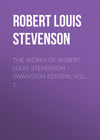

![XXXII Ballades in Blue China [1885]](https://cdn.litres.ru/pub/c/cover_100/25230660.jpg)

